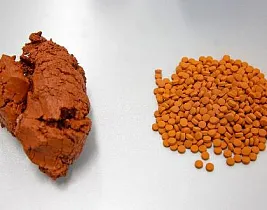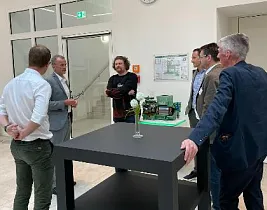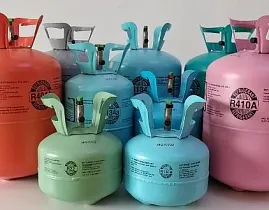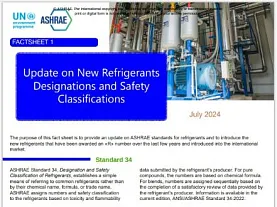
Collaboration between China and Thailand using OzonAction’s informal Prior Informed Consent (iPIC) system has resulted in the prevention of a huge consignment of ozone-depleting and climate damaging hydrochlorofluorocarbons (HCFCs). Those chemicals, which are primarily used as refrigerants for air conditioners and fridges, are controlled under the Montreal Protocol on Substances that Deplete the Ozone Layer and are being phased out by all countries according to a specific timeline.
In March 2020, China's Ozone Depleting Substance (ODS) Import/Export Management Office received an application to export 72 tonnes of HCFC-22[1]. The intended destination of the export was an importer in Thailand. A third-party intermediary had been employed to broker the trade.
Given the size of the requested export, the involvement of a third party, and a history of recent requests from Thailand, China’s ODS Import/Export Management Office used iPIC to investigate the legitimacy of the trade with the National Ozone Unit of Thailand.
iPIC is a voluntary and informal mechanism of information exchange on intended trade between countries in ODS and hydrofluorocarbons (HFCs) and mixtures containing these substances. iPIC was created and is hosted by UN Environment Programme (UNEP) OzonAction. The system enables countries to share details of eligible importers and exporters with other member countries through a secure online platform. iPIC focal points can carry out easy consultations with their trading partner countries to verify intended shipments of ODS. iPIC has become a global voluntary initiative used by more than 100 countries.
On receiving the iPIC query from China, Thailand confirmed immediately that the importing company was officially registered. However, the approved import licence was for a different manufacturer in China. Further investigation revealed that the importer in Thailand had not requested any imports from China in 2020.
Accordingly, China immediately rejected the export application, preventing a potential illegal trade of 72 metric tonnes of ODS. This was about 130,320 tonnes of CO2 equivalent, or 3.96 ODP[2].
The investigations didn’t stop there. China’s ODS team followed up with the Chinese exporter, while temporarily suspending the company’s ODS export applications. Investigators found that the exporting company was not involved in the fraud. With facilitation from OzonAction's Compliance Assistance Programme (CAP) team in Bangkok, it was concluded that the suspected counterfeit license was created by the third-party broker. China’s ODS team attempted to contact the broker, but as is common in smuggling cases, the contact details provided on the shipping documents were not genuine or current. As a result, China is planning to strengthen its review and management of the third-party brokers and intermediaries.
China is a long-time and proactive user of the iPIC mechanism. It has been using the system since 2013 and conducts around 300 iPIC queries every year. As of March 2020, China had already initiated 301 iPIC queries.
While the excellent cooperation between China and Thailand and the use of iPIC prevented this illegal transaction, this incident should serve as a warning to all countries that such trade continues to take place. It shows that National Ozone Officers and customs authorities must remain vigilant against potential illegal trade in HCFCs and other controlled substances. It has also shown that regular screening of intended imports and exports through iPIC can be a means to prevent illegal and unwanted trade.
[1] HCFC-22= chlorodifluoromethane, a hydrochlorofluorocarbon (HCFC)
[2] ODP = Ozone depleting potential tonnes. For HCFC-22, 1 metric tonne is equivalent to 0.055 ODP tonnes and 1,810 CO2-eq tonnes.





